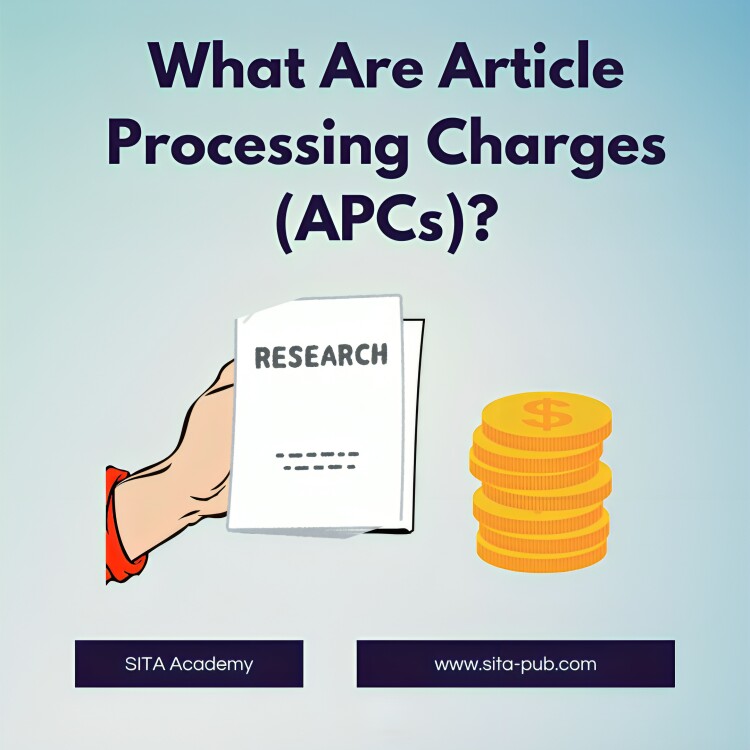What Are Article Processing Charges (APCs)?


Article Processing Charges (APCs) are important fees in academic publishing, especially for open access. These publishing fees allow researchers to share their work with everyone, making knowledge accessible to all.
APCs are costs that authors pay to publish their articles in open access journals. When an author pays this fee, their research becomes free for anyone to read, without needing a subscription.

The main reason for APCs is to support the open access publishing model. These fees help cover the costs of making research widely available.
APCs cover several key areas:
Editorial Management: Work done by editors to manage the submission process. |
Peer Review Process: Experts evaluate the article for quality and accuracy. |
Typesetting and Formatting: Preparing the article for publication, including layout. |
Online Hosting and Maintenance: Ensuring the journal’s website functions well. |

The amount of APCs can vary based on different factors:
Journal Prestige: Well-known journals often charge higher fees due to their reputation.
Field of Study: Different academic areas may have unique pricing based on demand.
Additional Services Offered: Some journals may provide extra services, which can raise the fee.

There are different ways to pay APCs:
Author-Pays Model: Authors pay the fee directly when their article is accepted.
Institutional Agreements: Some universities cover APCs for their researchers.
Funding Agency Support: Grants from research organizations may help with these costs.
Many journals offer waivers or discounts for certain groups:
Low-Income Country Authors: Authors from poorer countries may receive reduced fees.
Early-Career Researchers: New researchers might get discounts to encourage publication.
Unfunded Authors: Those without funding can apply for assistance with APCs.
When choosing a journal, it’s important to compare fees. Look at the journal’s reputation, reach, and included services to make an informed choice.

Publishing in open access journals has several advantages:
Increased Visibility: Research is available to a broader audience, leading to more citations.
Wider Accessibility: Anyone can access the research without paying, promoting knowledge sharing.
APCs face some criticism, including:
Affordability: High fees can be a barrier for researchers, especially those without funding.
Potential for Exploitation: Some worry that the APC model might lead to predatory practices.
The future of APCs may see changes, such as:
Institutional Open Access Policies: More universities may support open access, providing additional funding options.
Innovative Publishing Models: New approaches, like community-supported publishing, could reshape how fees are structured.

Yes, you can find good journals that do not charge fees. Many traditional journals cover their costs through subscriptions rather than author payments. Here are some ways to find these options:
Consult Academic Databases: Use resources like JSTOR, PubMed, or Google Scholar to find journals that don’t require fees.
Check Journal Directories: Directories like the Directory of Open Access Journals (DOAJ) can help you identify reputable journals without charges.
University Resources: Many universities provide lists of recommended journals that do not have fees.
Professional Associations: Organizations in specific fields often publish journals that may not charge authors.
Ask Peers and Mentors: Talk to colleagues or mentors for suggestions on journals without costs.
Use Publication Support Services: Some institutions offer publication support services that help researchers find suitable journals without APCs, guiding them through the process of submission.
By exploring these options, authors can find suitable journals to publish their research without the added burden of APCs, helping them navigate research publication costs effectively.
Do you want to publish your paper in open access journals?
Contact SITA Academy today! Our team will handle the entire publication process for you, ensuring a smooth and successful journey from submission to publication. Let us help you make your research accessible to everyone!
If you have any questions, inquiries, or would like to learn more about our services, please don't hesitate to reach out to us. Our dedicated team is ready to assist you.